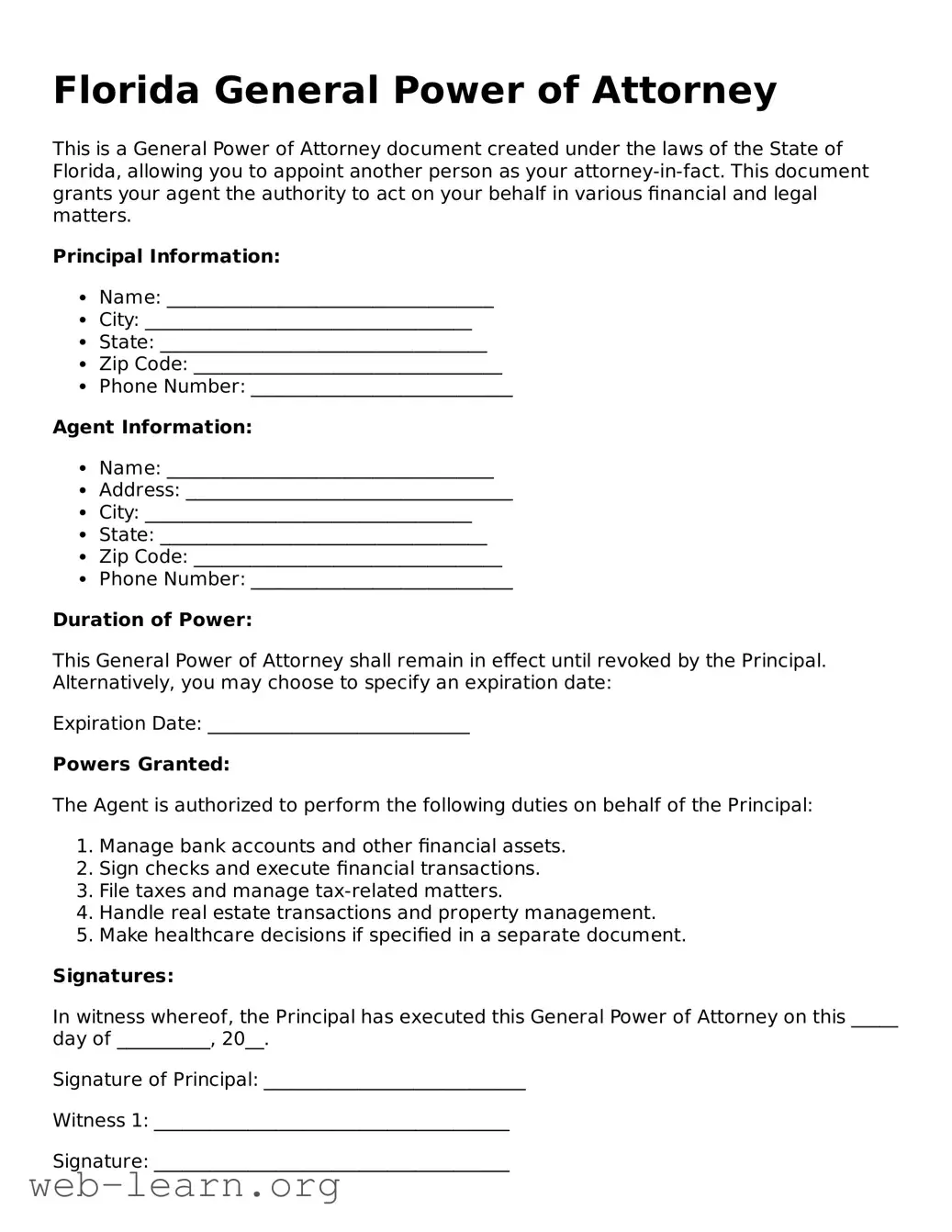Florida General Power of Attorney
This is a General Power of Attorney document created under the laws of the State of Florida, allowing you to appoint another person as your attorney-in-fact. This document grants your agent the authority to act on your behalf in various financial and legal matters.
Principal Information:
- Name: ___________________________________
- City: ___________________________________
- State: ___________________________________
- Zip Code: _________________________________
- Phone Number: ____________________________
Agent Information:
- Name: ___________________________________
- Address: ___________________________________
- City: ___________________________________
- State: ___________________________________
- Zip Code: _________________________________
- Phone Number: ____________________________
Duration of Power:
This General Power of Attorney shall remain in effect until revoked by the Principal. Alternatively, you may choose to specify an expiration date:
Expiration Date: ____________________________
Powers Granted:
The Agent is authorized to perform the following duties on behalf of the Principal:
- Manage bank accounts and other financial assets.
- Sign checks and execute financial transactions.
- File taxes and manage tax-related matters.
- Handle real estate transactions and property management.
- Make healthcare decisions if specified in a separate document.
Signatures:
In witness whereof, the Principal has executed this General Power of Attorney on this _____ day of __________, 20__.
Signature of Principal: ____________________________
Witness 1: ______________________________________
Signature: ______________________________________
Witness 2: ______________________________________
Signature: ______________________________________
Notarization:
State of Florida
County of _________________________
On this _____ day of __________, 20__, before me, a Notary Public, personally appeared _______________________, known to me to be the person whose name is subscribed to the foregoing document, and acknowledged that they executed the same.
Notary Public Signature: _____________________________
My Commission Expires: ______________________________
